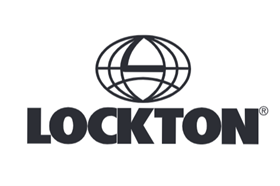Sponsored content
It was a positive year for firms that renewed their insurance in 2024, with rate reductions that accelerated as the year progressed.

There were three core factors driving these improved conditions:
1. Renewed appetite for growth among some established insurers.
2. The continued arrival of new entrants to the market. Coupled with those who entered in 2023, this resulted in new capacity seeking to grow portfolios and build critical mass.
3. A stable claims environment. Despite larger losses continuing to emerge, the market has avoided a new wave of attritional loss. In years gone by, be it buyer-funded developments, Right to Buy, cyber-crime, or escalating ground rent, the market has managed to avoid a new wave of loss.
As ever, not all firms experienced rate reductions. Those with fees below £500,000 and a high proportion of commercial and/or residential property exposure, those where directors/partners are at, or nearing retirement age with no succession plan in place, and those engaged in financial mis-selling work typically experienced higher rates than the average. The opposite was true for those undertaking low-risk areas of work, and/or with fewer claims.
Claims data
We have analysed four main factors across our portfolio of circa 1,700 SRA regulated practices across 2024. This data is taken from placements across the main SRA participating insurers. The main themes from the data show that across 2024, the average primary rates and premium have diluted once again. The average primary layer rate (showing the cost of primary layer insurance as a % of revenue) was 4.25% in 2024, while average total premium sat at £38,281. Both of these were a reduction on 2023 of -7.52% and -5.72% respectively.
While firms’ average revenue continued to grow, it did so at a slower rate than in 2022-23. Average fee income in 2024 stood at £1,226,485, an increase of 1.49%. Meanwhile, average excess layer rates sat at 0.83% for limits between £3–10m, a -4.91% reduction.
Further analysis
Drilling down into the relationship between fee income and primary rate, the data shows that the lowest rates were available to firms with the largest fee income. In particular, firms with income in excess of £10m achieved average primary rates of 1.77%. Predictably, these firms also experienced the largest average rate reductions in 2024, of -10.86% compared to 2023.
By contrast, firms with income under £1m saw higher rates, at an average of 4.90%. However, even these firms saw notable rate reductions, of -6.91% on the prior year. The remaining firms typically conformed to this pattern.
Insurer outlook for 2025
Overall, there is strong reason for optimism in 2025. We anticipate further new capacity entering the marketplace, and greater competition across the next 12 months. However, there does remain concern among insurers, particularly those who have insured for SRA-regulated practices for a sustained period.
Areas that could result in issues across insurer portfolios include the financial health of a practice, fraudulent acts, and anti-money laundering checks. Insurers are also concerned that the lack of clear policy for artificial intelligence (AI) usage within a firm may create scenarios in which AI is used by a minority in the business without the knowledge of the company leadership. Firms may also deploy AI without proper protocols for human verification and scrutiny of AI-generated content.
Financial mis-selling work was perhaps the most significant emerging risk in 2024; a number of high-profile firms collapsed, with the aftermath of some cases resulting in Parliamentary scrutiny. Insurers are cautious of such work, primarily due to the funding structures they involve.
Insurers remain thorough in their underwriting process, so firms should continue to present themselves as positively as possible. Increasing underwriter confidence in their risk gives firms themselves the best chance to achieve a strong placement outcome. This relies on strong, transparent communication, early engagement, and proactive risk management.
To read the full report, click here.
Marc Rowson, Partner at Lockton

Telephone 020 7933 2034
Mobile 07971749840
Email marc.rowson@lockton.com






























No comments yet